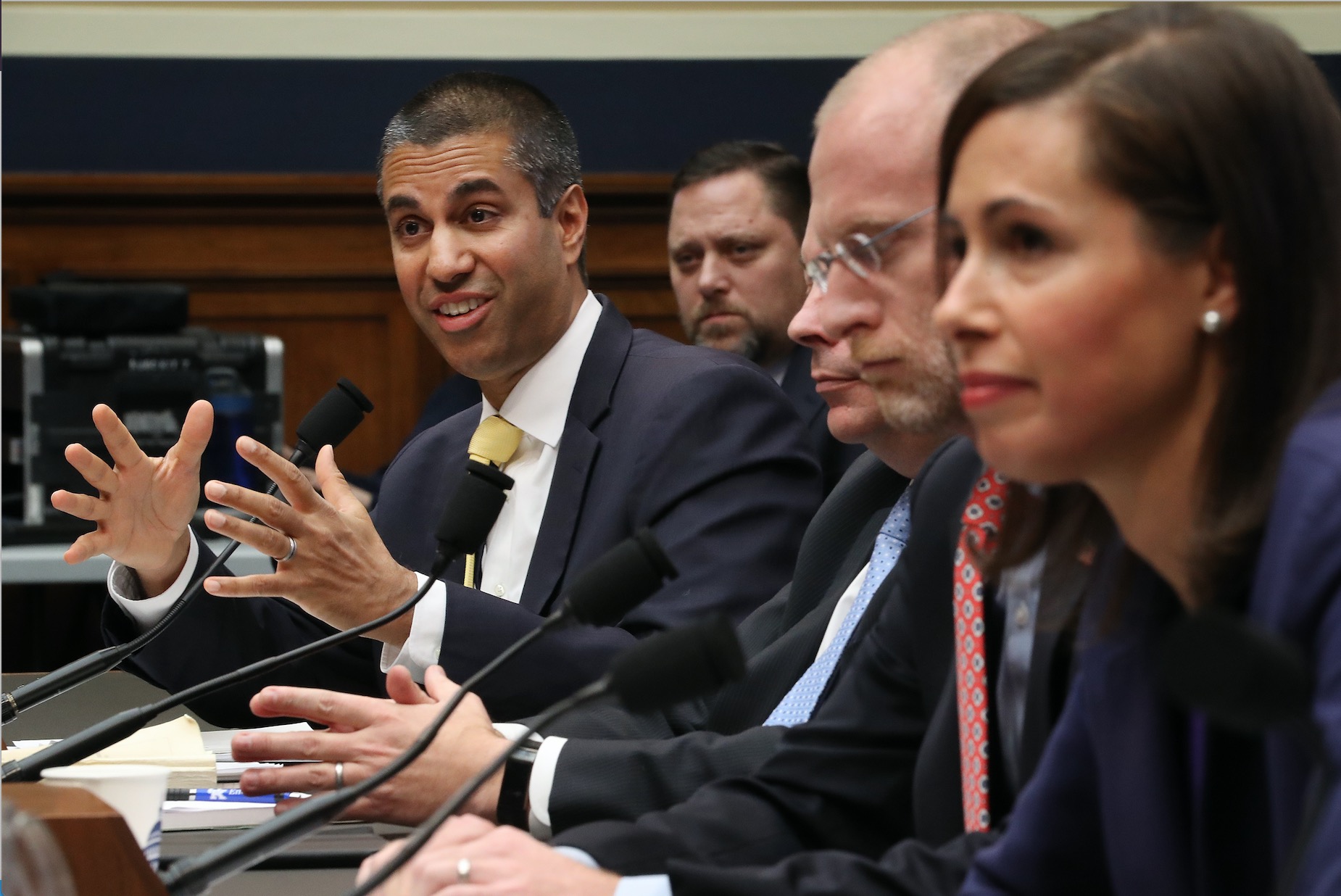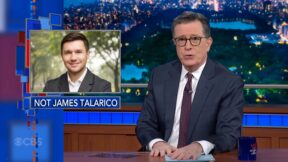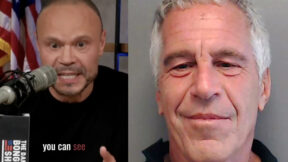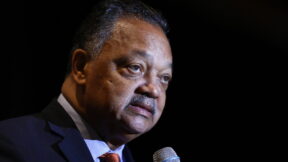FCC Chairman Says Agency Will Move on Social Media Companies, End ‘Special Immunity Denied to Other Media Outlets’

Chip Somodevilla/Getty Images
Federal Communications Commission Chairman Ajit Pai said Thursday that he plans to begin a rulemaking process to clarify the legal immunities social media companies are permitted to claim under federal law, writing that in his estimation, they do not have a right to “special immunity” denied to traditional media.
“Members of all three branches of the federal government have expressed serious concerns about the prevailing interpretation of the immunity set forth in Section 230 of the Communications Act,” Pai said in his statement. “Many advance an overly broad interpretation that in some cases shields social media companies from consumer protection laws in a way that has no basis in the text of Section 230.”
Pai said he intended “to move forward with a rulemaking to clarify its meaning.”
The 1996 law, which enabled young internet companies to avoid liability for comments made by third-party users, hinges on the concept of technology companies acting as “distributors” of content rather than as “publishers” similar to traditional media, such as newspapers or television broadcasters. It has faced scrutiny from conservatives over the last several years, who have argued that platforms including Facebook and Twitter are acting as traditional publishers when they selectively censor or remove content.
“Throughout my tenure at the Federal Communications Commission, I have favored regulatory parity, transparency, and free expression,” Pai added. “Social media companies have a First Amendment right to free speech. But they do not have a First Amendment right to a special immunity denied to other media outlets, such as newspapers and broadcasters.”
The announcement from Pai comes five months after President Donald Trump signed an executive order asking the FCC to review the law, and one day after Facebook and Twitter began preventing users from sharing links to a New York Post report about Democratic presidential nominee Joe Biden’s son, Hunter. Twitter took the additional step of locking several accounts associated with the president, including one for his campaign and another for White House press secretary Kayleigh McEnany.
Even before this week’s developments pushed the issue to the top of the news, Supreme Court Justice Clarence Thomas indicated he would be amenable to seeing a change in how the law is interpreted.
“When Congress enacted the statute, most of today’s major Internet platforms did not exist,” Thomas wrote in a Tuesday opinion. “And in the 24 years since, we have never interpreted this provision. But many courts have construed the law broadly to confer sweeping immunity on some of the largest companies in the world.”
New: The Mediaite One-Sheet "Newsletter of Newsletters"
Your daily summary and analysis of what the many, many media newsletters are saying and reporting. Subscribe now!






Comments
↓ Scroll down for comments ↓